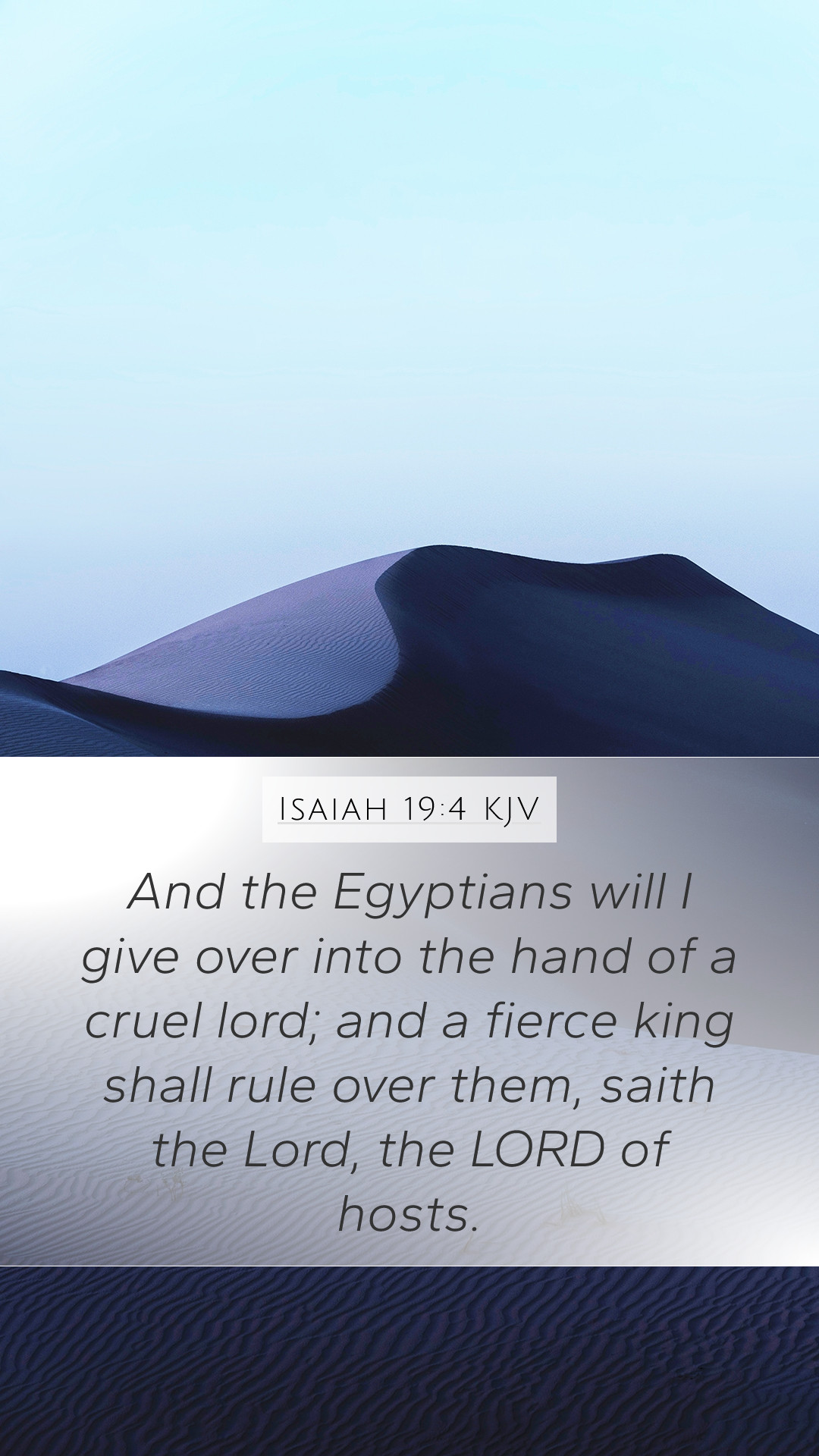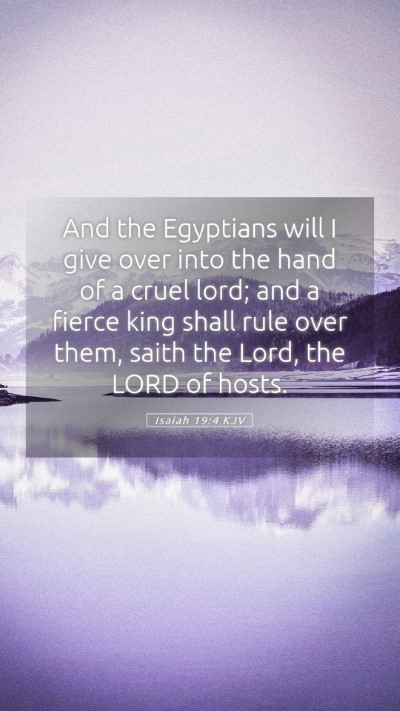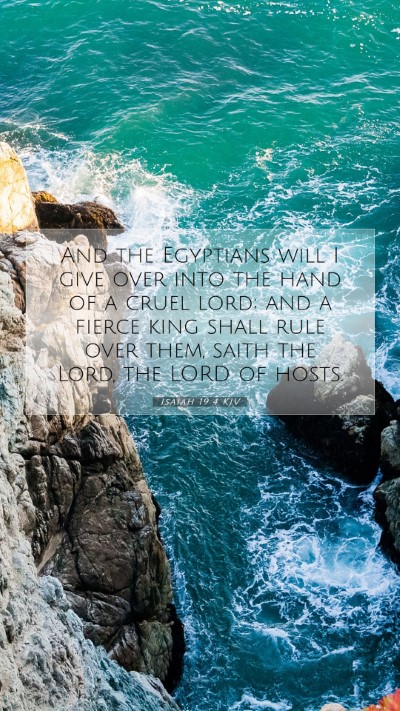Understanding Isaiah 19:4
Isaiah 19:4 states: “And the Egyptians will I give over into the hand of a cruel lord; and a fierce king shall rule over them, saith the Lord, the Lord of hosts.” This verse offers a profound insight into the judgment and governance of God, particularly upon the nation of Egypt. The analysis of this verse draws upon various public domain commentaries, providing a comprehensive understanding of its meaning and implications.
Meanings of Key Terms
- Egyptians: Symbolic of both a literal nation and a representation of sin and oppression.
- Cruel lord: Suggests a tyrant or harsh ruler that brings forth suffering.
- Fierce king: Represents a powerful and aggressive leader who enacts God's judgment.
- Lord of hosts: A title that signifies God's sovereignty and control over all creation.
Contextual Background
This prophecy is set in a historical context where Egypt was a significant power but also a nation that had turned away from God. The prophecy is part of a larger narrative where God declares His judgment on various nations, indicating that divine retribution can come through the establishment of other rulers over them.
Commentary Insights
According to Matthew Henry, this passage emphasizes God's authority over all nations, suggesting that even those once great and powerful will be subjected to divine judgment. His commentary elucidates that the term "cruel lord" signifies the severity of the oppression that will ensue, reflecting an aspect of God's justice.
Albert Barnes elaborates further, emphasizing the political turmoil that Egypt would face. He notes that the "fierce king" symbolizes rebellion against God and how such actions lead to the rise of ruthless leadership. Barnes underscores the idea that these events serve to turn nations back to righteousness after suffering under tyrannical rule.
Adam Clarke’s commentary dives deeper into the specific implications for the Egyptians. He captures the emotional turmoil and the consequences of ignoring God’s commandments, suggesting that this is a historical reflection of the nation's relationship with its divine creator. Clarke brings attention to the importance of recognizing governance as part of God’s cosmic order, where rulers are either instruments for good or punishment.
Theological Implications
This verse serves as a reminder of the consequences of sin and the sovereignty of God in governance. It illustrates the idea that God can raise up leaders for His purposes, even when they may be cruel or unjust. This contrasts with the biblical understanding of righteous leadership, promoting a conversation about the qualities of good governance as laid out in Scripture.
Practical Applications
In applying the teachings of Isaiah 19:4, believers are encouraged to reflect on their own lives and nations, looking for ways to align with God's will to avoid judgment. This passage challenges us to seek divine guidance in leadership and to stand against tyranny in our contemporary contexts.
Related Bible Verses
- Jeremiah 25:9 - God's judgment on nations.
- Amos 1:6 - Proclamation against Gaza, similar context of divine judgment on nations.
- Ezekiel 30:4-5 - Describes the coming judgment upon Egypt.
Conclusion
In conclusion, Isaiah 19:4 portrays a stark image of God’s judgment and serves as a reminder of the divine order that governs nations. It encourages believers to study Scripture for understanding the significance of God's sovereign plans as applicable even today. For those participating in Bible study groups or seeking online Bible study resources, this verse highlights the need for reflection on current leadership and the spiritual health of our nations. By engaging in Bible study lessons and exploring the historical context and significance of passages like this one, believers can gain crucial insights into the nature of God’s governance and the important lessons it carries.


